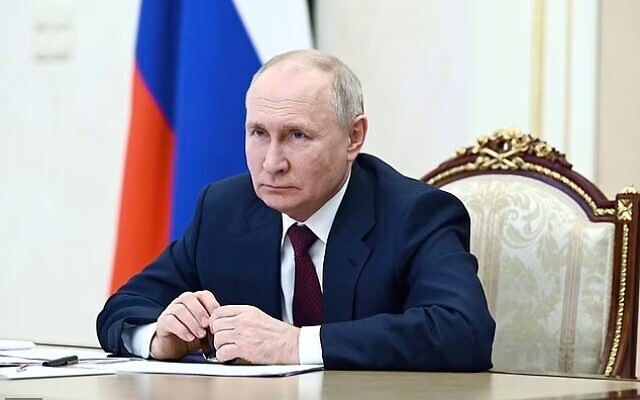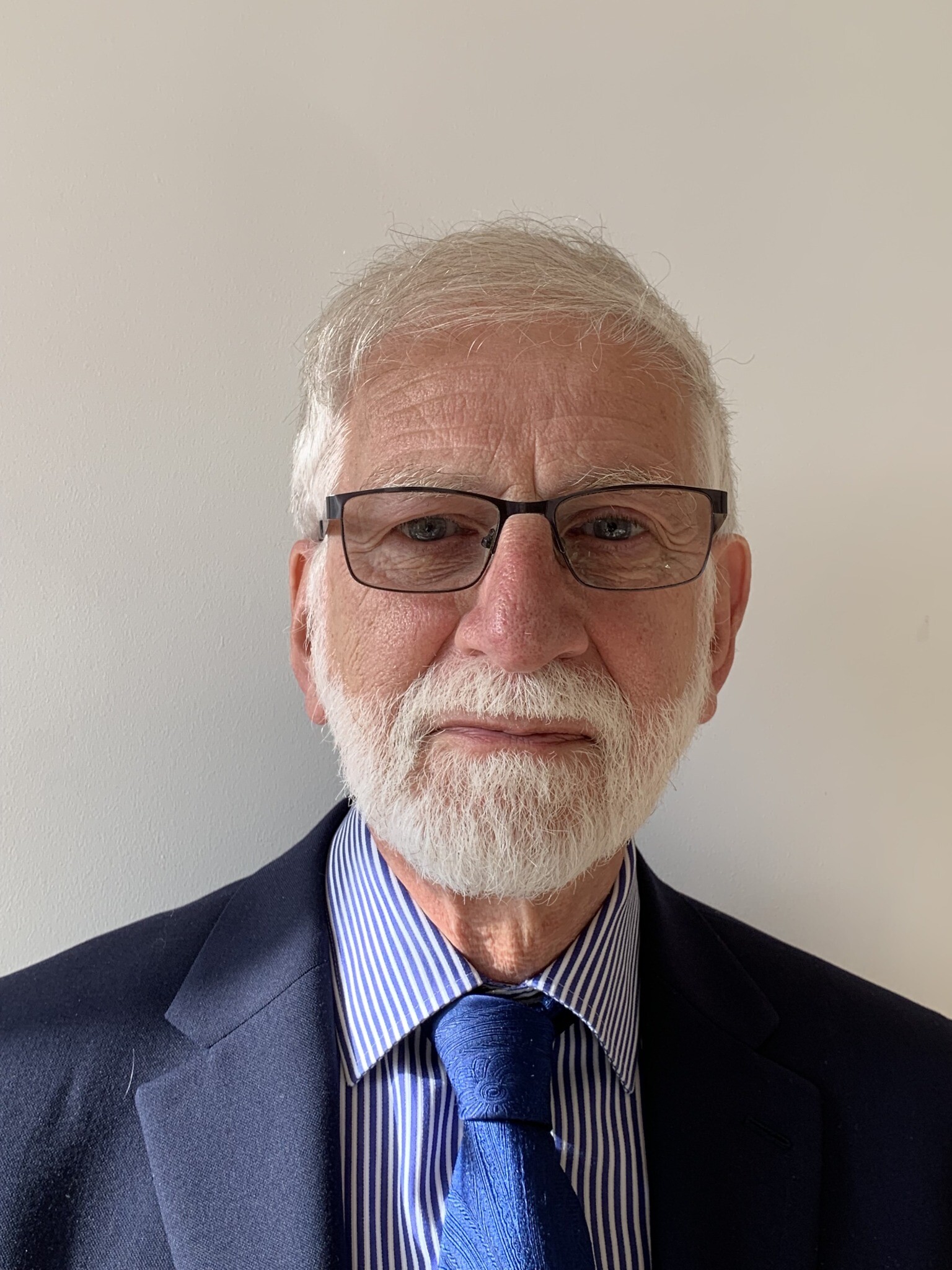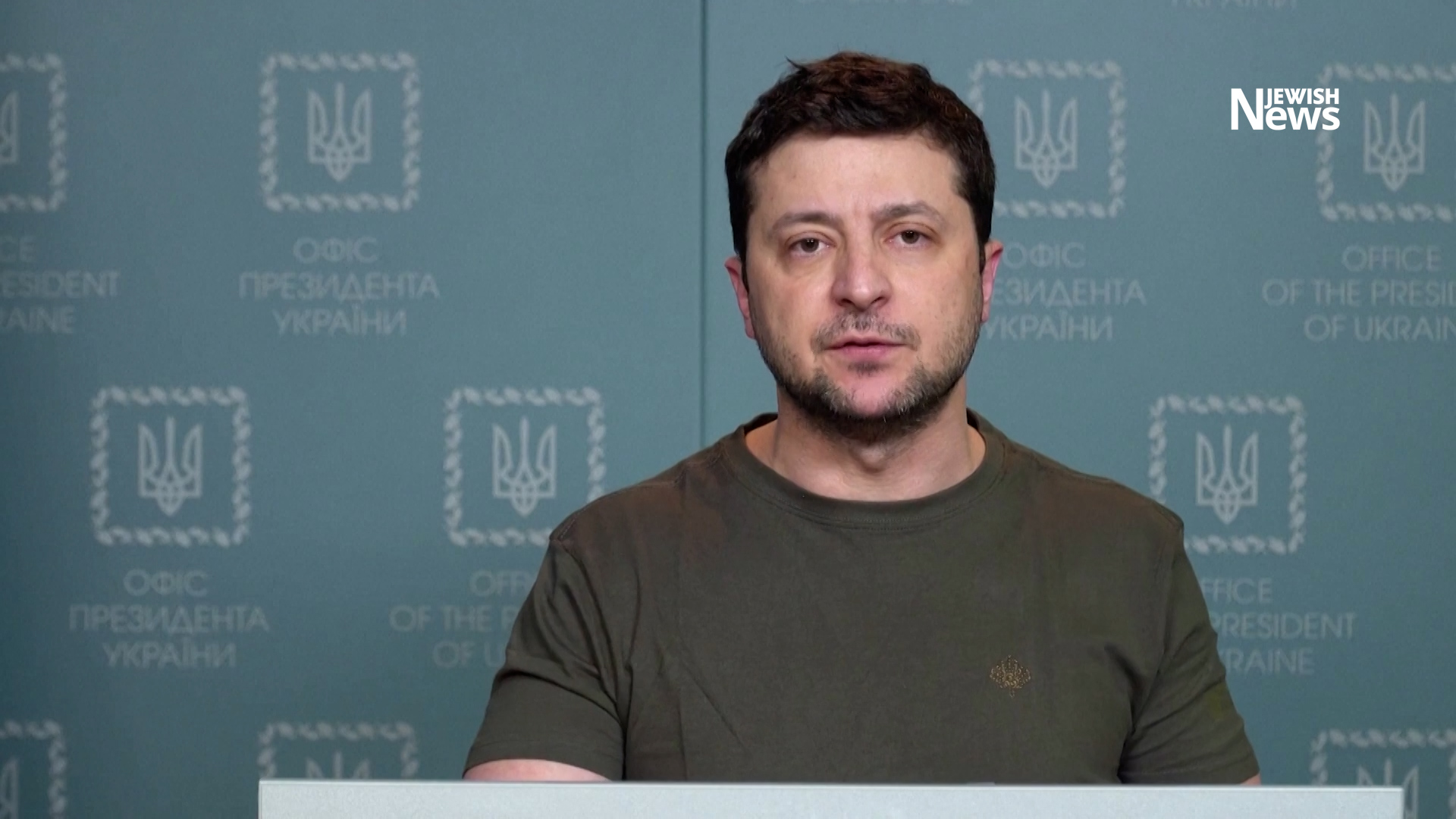Opinion: 500 days of the Ukraine war – and scapegoating
Putin has been eager to retain the support of the Russian far-right — and antisemitism has been weaponised to further this agenda, writes Colin Shindler

It is now 500 days since Vladimir Putin launched his war against the civilian population of Ukraine, days that have been peppered with anti-Jewish comments and imagery.
In a search for a scapegoat for last week’s mutiny by Yevgeny Prigozhin, the head of the Wagner mercenaries, Putin looked back into Russian history and repeated the claim that revolution and retreat in the First World War was ‘a stab in the back’ by disloyal forces. For Hitler, that scapegoat was the Jews.
Putin has been eager to retain the support of the Russian far-right — and antisemitism has been weaponised to further this agenda. The bizarre comment and carefully chosen words of Sergei Lavrov, Russia’s urbane foreign minister, in suddenly asserting that Hitler was of “Jewish blood” and that ‘the most ardent antisemites are, as a rule, Jews’ was a clear example of this.

Putin himself recently declared that Volodomyr Zelensky, according to “Jewish friends”, really wasn’t Jewish — and therefore the claim that he was little more than a neo-Nazi committing genocide against Russians in the Donbas could be justified. This throwaway comment was designed to appeal to both nationalists and antisemites.
There were two sharp reactions to such deranged utterings — one was from Zelensky himself and the other was from the Chabad Ukrainian Chief Rabbi Moshe Azman. Both have used their powers of persuasion and expertise at public relations to secure support, both military and financial, for Ukraine’s struggle against the Russian aggressor.
Both men — one an acculturated Jew, the other a Lubavitcher Chasid — share a childhood of growing up in the Soviet Union. Russian was their first language. Both follow in the tradition of Jewish dissidents and iconoclasts.

While Zelensky came of age in Kryvyi Rih (Krivoy Rog) in Soviet Ukraine, Azman was born in Leningrad (now St Petersburg). Zelensky lost relatives when the Nazis invaded the USSR while Azman recalled the Stalinist Great Purge in the 1930s when many Jewish communists went to their deaths. What unites them is the experience of living in a totalitarian environment, defined by the KGB.
Zelensky refused to leave Kyiv at the outset of the invasion. Azman also declined to leave, making a passionate appeal, clutching a Torah scroll, to both Jews and non-Jews in Russia — to “those who are not indifferent”. He recalled his background as a Jew in Leningrad and said he could not believe that he might now die by Russian shells. He charged that those who remained indifferent were “partners in crime”.
His denunciation of the war put him at odds with Chabad’s Chief Rabbi in Russia, Berel Lazar, who has traditionally followed the Chabad approach of cultivating authoritarian figures while remaining silent about rights abuses to develop Jewish life in difficult situations. In an interview with the Moscow Times in 2001, Lazar said he believed that antisemitism at a government level was a thing of the past.

Chief Rabbi Azman has distinguished between Israeli attacks on Gaza, where precautions were taken to eliminate civilian casualties, and Russian actions such as the Iskander missile attack on a family pizza parlour in Kramatorsk last week. His dislike of Russian interference in Ukraine stretches back nearly two decades to his support for the Orange Revolution and its candidate for president, Viktor Yushchenko while other Ukrainian rabbis were happy to endorse pro-Kremlin figures.
Azman has left the safety of his Kyiv synagogue and visited the sites of devastation, bringing food, clothes, phone chargers and medical equipment. He has been able to fund his endeavours by using traditional Chabad methods in approaching often non-religious Jewish philanthropists in the US and elsewhere. He has also tried to soften Israel’s neutral stand on the war by cultivating the coalition which includes Kahanist Itamar Ben-Gvir and Religious Zionism’s Bezalel Smotrich. He was not averse to congratulating Netanyahu and the far-right straight after last year’s election.
Following the recent destruction of the Kakhovka dam, he visited the Kherson region to ascertain what was needed. Azman has been both bold and public – unafraid to act as a Jew for non-Jews. For many, his example embodies how Jews should act in dark times.
- Colin Shindler is a Professor of Israel Studies

Thank you for helping to make Jewish News the leading source of news and opinion for the UK Jewish community. Today we're asking for your invaluable help to continue putting our community first in everything we do.
For as little as £5 a month you can help sustain the vital work we do in celebrating and standing up for Jewish life in Britain.
Jewish News holds our community together and keeps us connected. Like a synagogue, it’s where people turn to feel part of something bigger. It also proudly shows the rest of Britain the vibrancy and rich culture of modern Jewish life.
You can make a quick and easy one-off or monthly contribution of £5, £10, £20 or any other sum you’re comfortable with.
100% of your donation will help us continue celebrating our community, in all its dynamic diversity...
Engaging
Being a community platform means so much more than producing a newspaper and website. One of our proudest roles is media partnering with our invaluable charities to amplify the outstanding work they do to help us all.
Celebrating
There’s no shortage of oys in the world but Jewish News takes every opportunity to celebrate the joys too, through projects like Night of Heroes, 40 Under 40 and other compelling countdowns that make the community kvell with pride.
Pioneering
In the first collaboration between media outlets from different faiths, Jewish News worked with British Muslim TV and Church Times to produce a list of young activists leading the way on interfaith understanding.
Campaigning
Royal Mail issued a stamp honouring Holocaust hero Sir Nicholas Winton after a Jewish News campaign attracted more than 100,000 backers. Jewish Newsalso produces special editions of the paper highlighting pressing issues including mental health and Holocaust remembrance.
Easy access
In an age when news is readily accessible, Jewish News provides high-quality content free online and offline, removing any financial barriers to connecting people.
Voice of our community to wider society
The Jewish News team regularly appears on TV, radio and on the pages of the national press to comment on stories about the Jewish community. Easy access to the paper on the streets of London also means Jewish News provides an invaluable window into the community for the country at large.
We hope you agree all this is worth preserving.





















